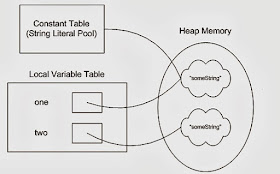Unalterable Strings: A Trick Component in Ensuring Data Uniformity and Integrity
In the realm of data management, the importance of immutable strings can not be overemphasized. The principle of unalterable strings goes beyond mere formality; it is a cornerstone in the complex internet of information administration.
The Idea of Immutable Strings
Immutable strings, a basic principle in programming, describe strings that can not be changed when they are developed. Essentially, when a string value is designated, any procedure that shows up to change the string really creates a new string. This immutability makes sure information uniformity and dependability in applications, as it protects against unexpected changes to the initial information.
Benefits in Information Uniformity

Information uniformity is critical in different aspects of software program advancement, including database monitoring, multi-threaded settings, and distributed systems (Why are strings immutable in Java?). Immutable strings add significantly to attaining this consistency by protecting against data corruption as a result of simultaneous access. In situations where multiple procedures or strings interact with the very same data at the same time, immutable strings function as a protect against race conditions and synchronization problems
Furthermore, the immutability of strings streamlines debugging and screening processes. With unalterable strings, programmers can trust that as soon as a string is set, it will continue to be the same, making it much easier to map the source of mistakes and ensuring that examination cases create regular results. This integrity in information taking care of eventually leads to a lot more stable and durable applications.

Implementing Immutable Strings
Making sure the immutability of strings needs a thoughtful approach to their execution in software growth. As soon as a string object is produced, one vital method is to design string classes in a method that prevents alterations. By making strings immutable, designers can boost data uniformity and reliability in their applications.
To execute immutable strings properly, designers must prefer creating brand-new string objects as opposed to modifying existing ones. This method makes certain that when a string is designated a value, it can not be transformed. Additionally, any type of procedure that shows up to modify the string ought to develop a new string with the wanted changes rather of changing the original.
In addition, utilizing immutable strings can streamline concurrency administration in multi-threaded settings. Since immutable strings can not be changed after creation, they can be safely shared among several threads without the danger of information corruption.
Duty in Integrity Assurance
In software program growth, the utilization of immutable strings plays an important duty in ensuring the reliability of data procedures. Unalterable strings, once created, can not be customized, making certain that the information they stand for stays consistent throughout the application's execution. This immutability building supplies a level of assurance that the data being processed will not be inadvertently changed, resulting in unforeseen outcomes or errors in the system.
By blog incorporating immutable strings right into software program layout, programmers can boost the integrity of their applications by decreasing the threats related to mutable information - Why are strings immutable in Java?. Unalterable strings assist in avoiding data corruption or unintended modifications, which can be specifically essential when managing delicate details or when data stability is critical
Furthermore, making use of unalterable strings streamlines concurrent processing, as multiple strings can safely access and share string data without the threat of one thread altering the web content while one more reads it. This aspect adds substantially to the general reliability of the software program system, making sure foreseeable and regular behavior in data taking care of operations.
Applications and System Assimilation
The smooth combination of unalterable strings into various applications and systems is critical for making certain robust information uniformity and reliability throughout diverse technological settings - Why are strings immutable in Java?. Immutable strings play a critical function in boosting the honesty of data exchanges and communications within complex software application ecosystems. By integrating unalterable strings into applications, designers reference can reduce the threats related to information meddling, unapproved modifications, and unintended changes, therefore strengthening the overall protection posture of the system
Unalterable strings can improve interoperability between disparate systems by providing a standardized layout for information depiction, allowing a lot more efficient information handling and exchange procedures throughout interconnected platforms. By taking on unalterable strings in applications and system combination procedures, organizations can strengthen their information facilities and support the integrity and uniformity of their info assets.
Conclusion
Finally, immutable strings play a critical function in keeping data uniformity and dependability in various applications click for info and system combinations. By making certain that strings can not be altered once developed, the honesty of data is maintained, minimizing the danger of mistakes and incongruities. Executing unalterable strings can dramatically boost the dependability of systems, ultimately bring about even more reputable and precise information handling.
